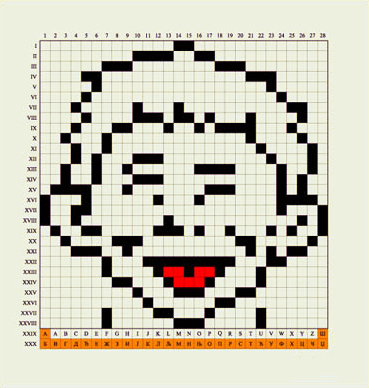
Dragan Jovanović, Bosnian Stew, oil on canvas, 2001.
Besides its subtle provocativeness, the new exhibition of Dragan Jovanović surprises with certain non-knowledge or restricted originality expressed in the feeling, even if without particular art references in spectator’s mind, that similar works had already been made. This feeling sometimes overshadows the narrative, emotional and reflexive qualities of exhibited works and, thanks to their formal density, turns into some kind of haunted dilemma that troubles their appraisal.
Is this non-knowledge a result of conscious authorial strategy, emancipated from the illusions of authenticity, or is just an effect of existential chaos of the artist who, far from the critical assessment and articulation, gets schizophrenically engaged in the excessive formalization of randomly chosen themes? These questions sanction the trivial consumption of Jovanović’s work and could discredit it if posed exclusively from the motivational aspect. Understood as a creative attitude that consciously generates these questions, however, the non-knowledge is the key of Jovanović’s poetic authority that relativizes the notions of academic (and thus in a special way ignorant) audience whose erudition and sophistication is appreciated but not considered paramount.
Jovanović handles his topics with intensity, eagerness and technical superiority marked with an almost fanatical persistence in outlining and profiling of details. A high degree of material finish is essential for the contextualization of his works because they can be identified as neither manual nor industrial products. It diminishes the notion of artist’s personality expressed in the notorious ‘personal touch’. The seemingly effortless or non-man made character of the works entails a more thorough examination that eventually reveals the scars of production, turning the attempt of their erasure into a kind of heroic act and initiating the story of artist’s drama, but shifts its essence from the social to the biological frame.
Through conceptual generalization and formal transparency, Dragan Jovanović abandons the traditional notion of the art as a production of original or distinct statements, and primarily defines it as a void in which the observer invests her or his own identity. The void is not imposed as a self-referential theme but discreetly emerges as a cognitive model whose ethical and intellectual values can be addressed with different, not necessarily compatible, sets of criteria.
Dragan Jovanović, Can of Laughter, exhibition catalogue, ULUS Gallery, Belgrade, 2002.